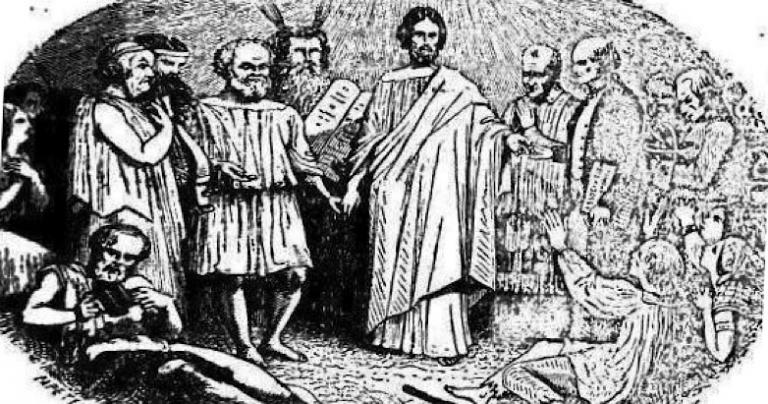
We need more persuasion and less winning.
Persuasion is a rule based method of helping a community, all of us, find truth, goodness, and beauty. Persuasion is not manipulation, that is tricksy power. Persuasion makes everyone more themselves while strengthening the community. Persuasion produces unity through hard won agreement that is sincere and grounded in experience, arguments, and a consensus. Such agreement is a firm foundation for going forward, because a persuaded group would need further persuasion (and not just some set backs) to change!
Winning, if the boss, is easy, Persuasion is hard. Persuasion is better than winning, because if I am right, then I have helped the team see the truth. If I am wrong, then the rules of persuasion mean I can change my mind and find the truth. Truth is what we are after as good people, not just winning for Team Me.
Plato’s Republic shows Socrates has gone wrong by the start of Book II. He has defeated some bad ideas, sort of. He has the intellectual muscle to shut a bad teacher down, but he has not persuaded his audience (or the bad teacher). Socrates has won. He is not satisfied and worst of all, his community is not satisfied. Actually there is no real community, just Socrates winning and everyone else shut down. Socrates thinks the discussion is done, but then hope is renewed when one person has the courage to point out the problem:
But on the contrary, the end turned out to be the beginning. With his usual energy, Glaucon objected to “I’hrasymachus’s withdrawal from the contest. He went on to ask: Socrates, do you really want to convince us that justice is preferable to injustice, or will you he content if we only seem to he persuaded?
Socrates has failed to persuade his friends. Why?
Persuasion relies on rules, not power.
Persuasion follows the rules of a good argument. The good leader looks for problems in his own position if the community cannot find any! Logical structure helps, because it is accessible to everyone. Common experience is good, because everyone has a perspective. Clarity is essential, even if clarifying is tedious, because many power moves can be hidden in a refusal to engage and stay engaged with the discussion.
The goal must always be to learn: winning is when the community learns the truth.
Persuasion relies on honest experience, not anecdotes.
Experience is evidence, but not if all the evidence is not given. We must face all of reality.
Persuasion is directed to a person and not program.
Socrates wanted to defend justice and his method of doing education. That is good, but he forgot that the person is more important than the idea or program. Persuasion attempts to incarnate the good idea in the person, not just to uphold the idea!
Sometimes you have to make decisions as a leader without being able to persuade people ahead of time. You hope the evidence of experience shows the team that the choice was correct. If you are wrong often enough when you do this, then the evidence of experience should show you that you are wrong.
Don’t I know!
What is never good is shutting up the opposition through muscle, intellectual or otherwise. Today as I teach my goal is to persuade.
No Christian school or college should win merely by muscle. That applies to critics as well. We must be in the persuasion business or we will find that while being quite educated we have failed the highest law: Love.
Persuasion is education and education is the application of love to truth seeking.
———————————————-
*I begin an informal summer reading of Republic using Scott/Sterling (a new translation for me). Part 1. Part 2. Part 3. Part 4. Part 5. Part 6. Part 7. Part 8. Part 9. Part 10. Part 11. Part 12. Part 13. Part 14. Part 15. Part 16. Part 17. Part 18. Part 19. Part 20. Part 21. Part 22. Part 23. Part 24. Part 25. Part 26. Part 27. Part 28. Part 29. Part 30. Part 31. Part 32. Part 33. Part 34. Part 35. Part 36. Part 37. Part 38. Part 39. Part 40. Part 41. Part 42. Part 43. Part 44. Part 45. Part 45.5. Part 46. Part 47. Part 48. Part 49. Part 50. Part 51. Part 52. Part 52.5. Part 53. Part 54. Part 55. Part 56. Part 57. Part 58. Part 59. Part 60.

















